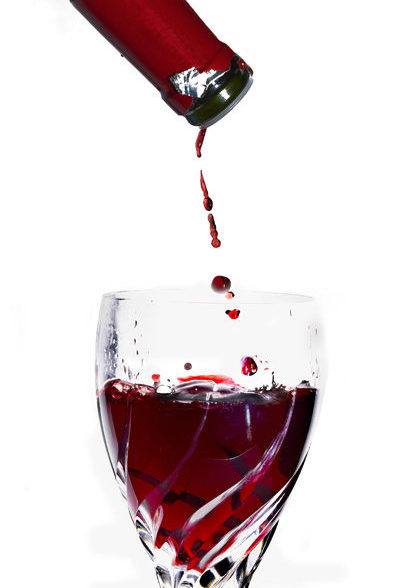
Indian River Medical Center’s clinical dietitian, Dianna DiCosimo, spilled the beans last week. Fortunately, she didn’t spill the cabernet sauvignon.
While DiCosimo knows all about healthy eating and drinking, you won’t see her butting heads with Mario Batali or “throwing down with Bobby Flay” on any televised cooking show anytime soon. Neither will you see her walking the hospital halls with a tastevin, (a sommelier’s shallow, silver tasting cup), hanging around her neck.
Clinical dietitians don’t do that.
However, at IRMC at least, they do serve wine – along with cold beer, vodka, scotch and other intoxicating beverages – to patients who can convince their doctor to write a prescription for alcohol.
According to the Mayo Clinic, “Clinical dietitians help patients maintain good nutrition by planning for their nutritional care based on their medical needs.” They also oversee staff and visitor food and, all told, DiCosimo is responsible for creating menus that are as healthy and tasty as possible for between 700 and 800 people every day, three times a day, 365 days a year.
With all that on her mind, maybe it’s understandable that she let slip a little-known factoid: With their doctor’s approval, IRMC patients can get wine dispensed by the hospital’s pharmacy, served with their meals.
Hospital officials turned coy when asked about the specific vintages the IRMC pharmacy dispenses, declining to name vineyards or price ranges.
But pharmacist Barbara Drondoski filled in some of the details. It was she that revealed beer and hard liquor are available along with red and white wine.
“The pharmacy keeps the alcohol under lock and key like any other drug and dispenses it when prescribed by a doctor,” says Drondoski, who worked in the IRMC pharmacy for four years before taking a job at the Lawnwood Regional Medical Center pharmacy last year. “The prescription might say ‘the patient is to have two beers with dinner” or “one glass of wine with lunch and one with dinner.”
Drondoski didn’t name specific vintages but said the wine is not “high-end stuff.” More expensive wines are sometimes served when patient’s friends or family bring in a bottle from the outside, something the hospital allows as well.
“It can be beneficial for the patient,” Drondoski says. “It helps them relax and there can be specific medical reasons for an alcohol perception [such as keeping an alcoholic who is being treated in the hospital from experiencing delirium tremens].
“Most hospitals will provide alcohol. We dispense it from the pharmacy at Lawnwood.”
Even though alcohol abuse is a major public health problem, causing 88,000 deaths in the U.S. annually according to the Centers for Disease Control, it isn’t hard to understand why a doctor might prescribe a daily glass of red wine to a hospital patient.
Two studies published in the American Journal of Clinical Nutrition claim resveratrol, a chemical found in the skins of red grapes and therefore in red wine, showed some impressive benefits for human heart cells.
In the first study resveratrol was found to be a potentially potent protection against cardiovascular disease and very possibly capable of helping to fight cancer, type 2 diabetes and neurodegenerative disorders including Alzheimer’s disease.
In the second study researchers wrote, “Daily red wine consumption for 21 consecutive day’s significantly enhanced vascular endothelial function.” In plain English that means it improved the health of the cells lining the blood vessels and that, in turn, improved blood flow and heart health.
The Mayo Clinic chimed in saying, the “antioxidants in red wine called “polyphenols” may help protect the lining of blood vessels” and that resveratrol, “reduces low-density lipoprotein (LDL) cholesterol (the “bad” cholesterol) and prevents blood clots.” The Yale University hospital in New Haven, CT adds that resveratrol, “may inhibit tumor development in some cancers” and “aid in the formation of nerve cells, which may be helpful in the treatment of neurological diseases like Alzheimer’s and Parkinson’s.”
Ironically, despite the havoc alcohol wreaks in millions of lives, other alcoholic beverages, such as white wine, beer and scotch also confer big health benefits when used in moderation, prolonging the average lifespan and helping ward off a host of diseases from dementia to diabetes, according to medicaldaily.com.
Nevertheless, many doctors are understandably reluctant to prescribe alcohol because of its potential for abuse and Drondoski says, in her experience, it is only prescribed to about five percent of hospital patients.
It is available, though, and if you enjoy a glass of wine with your dinner, you can have one the next time you stay overnight at Indian River Medical Center if your doctor gives DiCosimo the OK.



